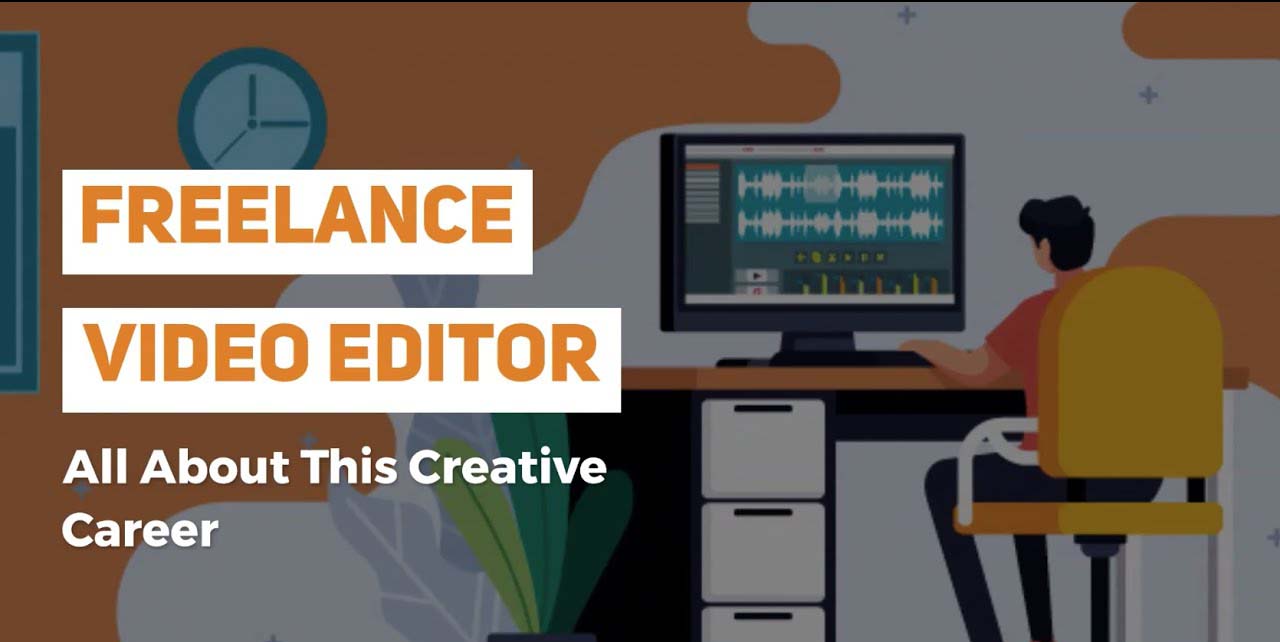


Since video material is currently the most effective marketing tool, a large prospective clientele need the services of qualified editors. But how can you turn this to your advantage?
If you're interested in video editing and pursuing it as a career, freelancing could be the perfect choice. What are the steps to begin, locate clients, and produce quality work? We offer some pointers to become a proficient freelance video editor.
You have a lot of options for software, so spend some time getting to know the one you like best. Adobe Premier, Pinnacle Studio, and Final Cut Pro are a few of the top systems for video editing that you may test out. There is always more to learn, and every software platform has its own features. Enroll in classes, finish the modules, and most importantly, learn by doing. You can go for short term video editing classes from the recognized institute like Maac. Learn professional required video editing software from professionals.
In order to succeed as a freelance video editor, you must have a strong portfolio. Demonstrate your editing abilities in a variety of formats and genres, including short films, ads, and social media posts, to start. To show off your skill to improve unprocessed material, include examples of before and after editing. To keep it current and appealing, add your most recent work to your portfolio on a regular basis. In order to help prospective clients see how you can add value to their projects, customize your portfolio to showcase your distinct style and strong points.
Once your portfolio is complete, you must market yourself and draw in customers. There are numerous methods for doing this, including setting up a profile on freelance websites like Fiverr or Upwork, connecting with other video experts on social media or at events, or contacting nearby companies or groups that could require video editing skills. Another way to offer your knowledge, advice, and trends about video editing is to start a blog or newsletter. Whatever you do, be sure to convey your rates, your niche, and your value proposition.
You will have to deal with a variety of clients, deadlines, and expectations as a freelance video editor. You must effectively and professionally manage your initiatives to prevent stress and confusion. This entails establishing precise and reasonable goals, keeping in touch with your clients on a frequent basis in a courteous manner, and producing excellent work on schedule. To improve efficiency and streamline your workflow, you must also employ the appropriate tools and software. For instance, you can make advantage of online collaboration tools, cloud storage, and video editing programs like Adobe Premiere Pro, Dropbox, Google Drive, and Slack.
As the video editing industry is always changing and evolving, you must stay up to date with the newest methods, tools, and trends. You must learn new things and improve your talents if you want to remain relevant and competitive. This can be accomplished by participating in online groups or forums, reading books or blogs, watching tutorials, or enrolling in online courses. You can also ask for and use feedback from mentors, peers, or clients to make your work better. You can boost your credibility and self-assurance as a freelance video editor by making an investment in your professional growth.
Lastly, if you want to succeed as a freelance video editor, you should consider yourself a business owner. This implies that your freelance profession requires planning, strategy, and evaluation. Setting short- and long-term objectives, tracking your results, and modifying your course of action are all necessary. You should also seek for chances to broaden your clientele, boost your revenue, and offer a variety of services. As an example, you may work with other independent contractors, increase your prices, or provide extra services like color grading, sound design, or animation.